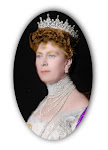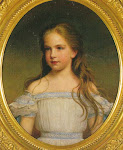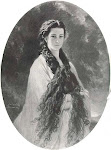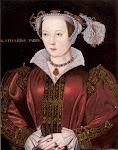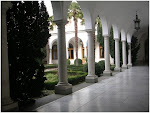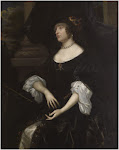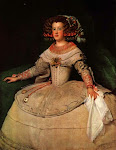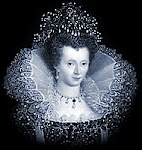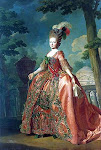
 Beatrice knew in her heart that sooner or later her dear Mama---Queen Victoria of all Britain---would give in, eventually, and let her marry the man of her dreams. Wouldn't she?
Beatrice knew in her heart that sooner or later her dear Mama---Queen Victoria of all Britain---would give in, eventually, and let her marry the man of her dreams. Wouldn't she?As I said in an earlier post, the Queen was furious with Beatrice for putting her in this position! She simply couldn't do without her daughter. Didn't everyone understand that? Beatrice was her confidante and she relied on her immensely for so many things. She had the weight of her world on her shoulders, and dear Albert, her husband was gone. Her nerves had been through so much. She couldn't live without Beatrice at her side.
And Beatrice dreamed of her new love night after night, knowing deep in her heart that she had met the man of her dreams, and oh, how could she ever give him up? She didn't want to hurt Mama in any way but why couldn't Mama understand that all Beatrice wanted was what the Queen herself had wanted and cherished...a man to love her and a house filled with children?She wanted to marry sweet "Liko" as he was known---the handsomest of the Battenberg brothers. And what was more, he loved her, too.
And thus began "The Battle Royale"---if there ever was one---this was it. Mother and daughter did not speak to each other. Oh, Beatrice did what she needed to do...she continued to arrange the flow of her mother's day and announce her mothers visitors and did her obligatory secretarial work, but when mealtime came, she sat in silence and ate quietly. She would not speak to her mother unless it was something of the utmost importance, most likely involving matters of the crown. There was no more small talk or gossip or even smiling. If Victoria wanted her to stay that badly, then fine. She'd stay. But she'd be as quiet as a mouse and as lifeless as could be. Needless to say, Beatrice must have been depressed and anxious over the whole situation. It was tearing her to bits. As much as she loved her mother, she was angry, too.
As for Victoria, her nerves began to be strained to the breaking point. During meals, her daughter sat quietly and stoically, ignoring her and barely speaking to anyone. As the days and weeks wore on, Beatrice became a changed woman. The Queen was distressed and quite sick over the whole ordeal. However, Beatrice had to understand that the Queen could not be familiar with anyone else. She needed a confidante and daughter that she could be intimate with. Her other daughters were off and married, some of them in far away lands. And the Queen was so lonely without her dearest husband Albert who had died so young. And he really was her dearest Albert...never had a husband been so loved. (And I mean, really!) What was Beatrice trying to do to her? If she allowed Beatrice to leave Britain and marry, she would not have the strength to go on. Her life was a series of pressures and obligations and she could not bear it.
.
.
Do you know this went on...not six weeks...but nearly six months? I don't know many people--or anyone for that matter, that dared to push Victoria's emotions to those limits. But finally the good Queen remembered her sweet, lovely days when she was a newlywed and the times she spent with the one man who she could truly be herself with...Prince Albert. She loved him passionately, wholeheartedly...what would her life have been without him? And...thinking like this...she realized that her baby just wanted the same thing...a man to adore her and a family. Did Victoria have the right, just because of her position, to insist her daughter have less than she herself had had?
.
.
She summoned Beatrice and offered a compromise....She could marry Henry of Battenberg---"Liko"---if she promised to remain in England at her side as her confidante, with her new husband and any children that might arrive in the future. Nothing could change. Beatrice's husband and any children would have to stay with the Queen always---and travel with her to her different homes and to London. Beatrice, ecstatic, agreed quickly to the idea and Liko also jumped at the chance. And so they were engaged and a lavish wedding on the grounds of Victoria's house on the Isle of Wight was planned. There would be tents on the grounds, flowers and a royal menu par excellence. Although Victoria was a bit nervous, despite herself, she enjoyed the planning and it did her heart good to see her daughter so contented...and began to become quite fond of Liko herself. The picture on the top left is of the royal wedding gown laid out and prepared before the wedding day. That's what things looked like in their home. For once, Beatrice felt like a Queen. Victoria even allowed Beatrice to wear her very own wedding veil....a sacred thing...and even joined the festivities of the wedding---to the degree that Victoria allowed herself to do that sort of thing. She was a bit teary when Princess Beatrice and her new husband pulled away in the carriage to begin their honeymoon. But, she stoically wiped her tears away. She would not let anyone see her emotion. These feelings would be recorded in her diary.
.
.
Beatrice had 3 children with Liko, and the eldest child was named "Ena." Ena was a "favourite" of the Queen's...(that' what the English Royals called it---favourite). Victoria had several grandchildren that she was particularly attached to....but I won't tell you all of that now....we can save that for another day. Queen Victoria allowed the three darlings to run and play in the palaces to a degree that she had never allowed her very own children to do. The children were allowed to be somewhat intimate with their grandmother, which was quite rare. Royal protocol was lessened just a bit when it came to her three grandchildren. Pictures of the Queen during this time show her content...and rarely did she smile, but when she was with the young family, she did smile more and she became more relaxed.
.
.
Beatrice stayed extremely close to her mother, so close that at times she felt she neglected her children just a little. Truly, she was a woman caught in the middle and this was difficult for her, but she managed to handle herself with a dignity and grace that--- really--- has not been widely recognized, but should be. Victoria was really at her best then...a tough Queen, seasoned, but very fair...and her legacy at the end of her life--- I think--- is in much part due to the devotion of Beatrice. There is not that much information on Beatrice...but, there will be a book coming out in the future on her. It's called The Last Princess, and it is not available in the United States yet.(sigh) but it is available to those of you in the UK. (Yes, I've thought of getting it from the United Kingdom!)
.
.
Beatrice simply adored her husband--and Victoria found him quite "amiable". I daresay---and this is my opinion only---that these happy years reminded Victoria very much of her young married years with Albert. There was laughter and joy again in their homes again, and Liko, in his own way, looked after them in a sort of protective way which I think the Queen needed badly.
.
.
Ah....fairytales....they really do come true.
.
.
There's some sadness in their story...but, I am not here to make you sad. I'm here to tell you that Beatrice got the joy that she feared would elude her forever...loving a dear man...having her children...and doing the job she was born to do for her beloved "mama'.
.
.
And Ena grew up to be a beautiful girl, and a Queen too. She also carried the hemophiliac gene.
Perhaps on another post I can talk more about Beatrice and Liko, and their life together. I'm definitely not finished with Beatrice yet, that's for sure. I've got Beatrice on the brain!
.
.
Speaking about what's on the brain, I'm working on a new, long piece for the Royalist. I'm hoping it will turn out good. I'll let you know when it's ready.
.
.
I've also been having a grand time on my new My Space page. I worked on it several weeks before I started adding friends. Its a blast!! I love it! Why am I always the last one to find out these things? LOL... My page has a royal theme (how did you ever guess?) and it's really been lots of fun. I also added so many new friends to my Bebo page.
.
.
One of my dear friends sold her second book---and I just saw the cover!! Its sooo pretty and once its closer to publication maybe I'll ask her if I can post some information on it here....or perhaps even interview her or something. She loves royalty, castles and all of that too---and her novel is filled with a knight, a castle and a lot of love.
.
.
Several writers have written to me to ask if they can link up with this blog---silly! Of course you can. But it's very sweet of them to ask and I'm honored that anyone would like this enough to link to it. Someone also wrote me to ask if they can interview me about writing about Queens....I don't have all the details yet, but that's such compliment. I don't know much really---except about Queens, that is.
.
.
It's a lazy Sunday afternoon and my little Prince and my King are food shopping and I am supposed to be cleaning up a little instead of writing about Queens!
.
.
Please let me know what you'd like to read about and I'll try to write about it.... I was even thinking of adding an extra page or two for fiction stories & excerpts on my "Queens novels"....its just a thought. Oh, do I dare?
.
.
Psssst.....That picture on the top left...it's really Ena's wedding dress laid out. But I didn't want to spoil the story...you get the idea.
.
.
And in case you're wondering what Princess Diana's private little nickname was...(you probably haven't been able to sleep nights wondering, I know!) ...only family and very close friends called her this...they called her "Duch."
.
.
Stay cozy in your castles this week and treat yourselves like the Queens you are...









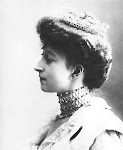

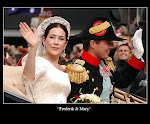

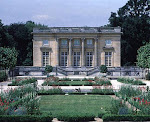
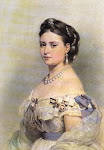
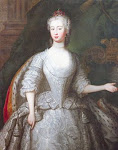
+Mary++Princess+of+OrANGE.jpg)


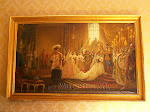


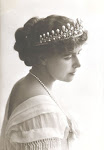
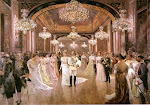

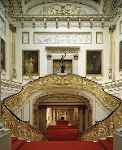
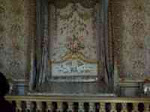


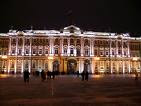
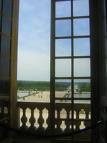

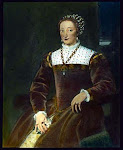


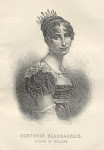



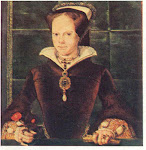
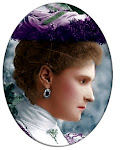

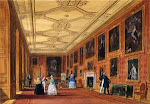

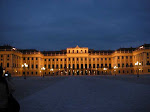

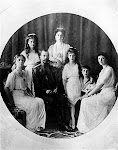
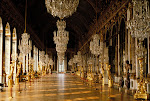
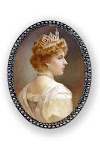

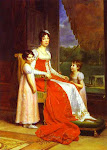

.jpg)
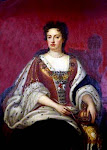

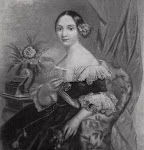
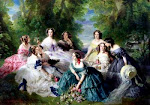
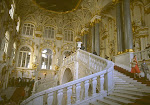
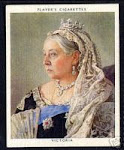
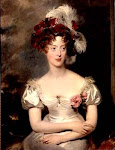
.png)
